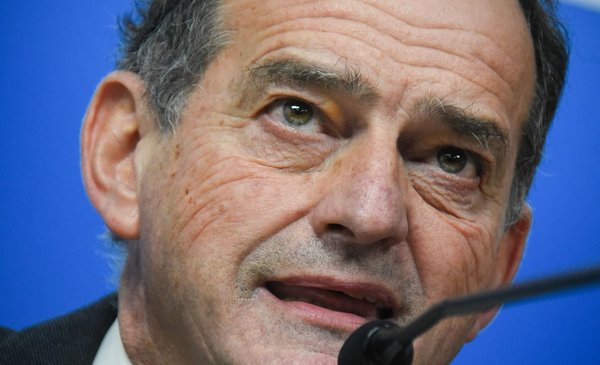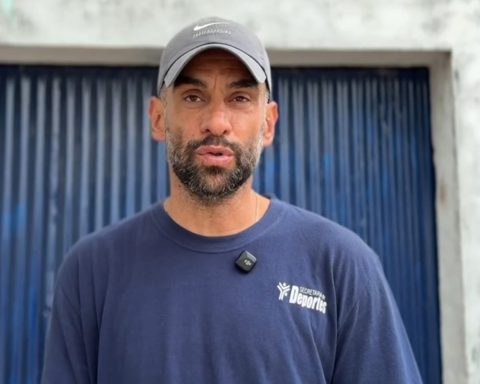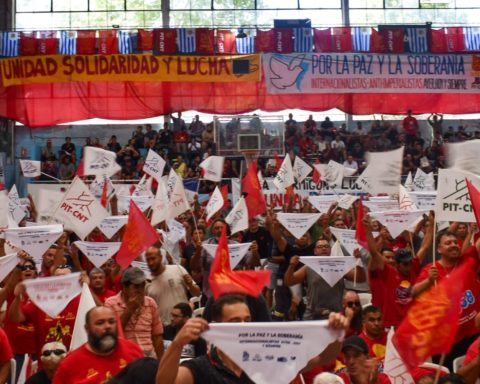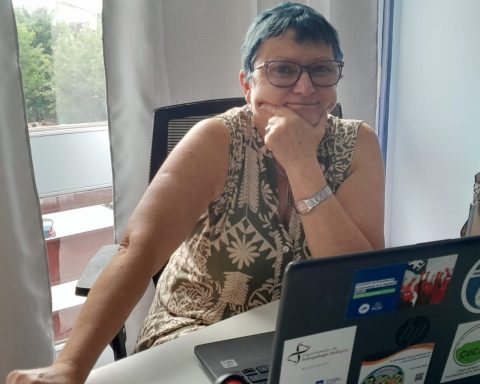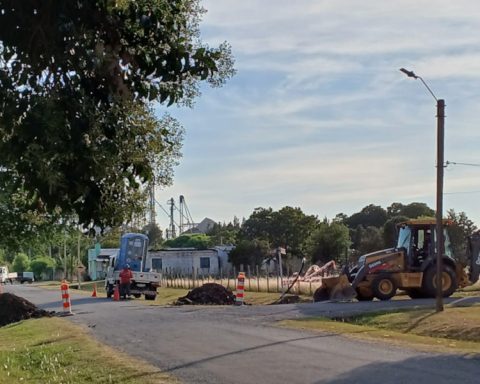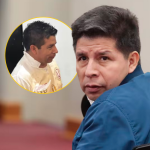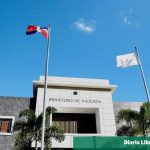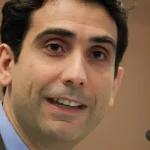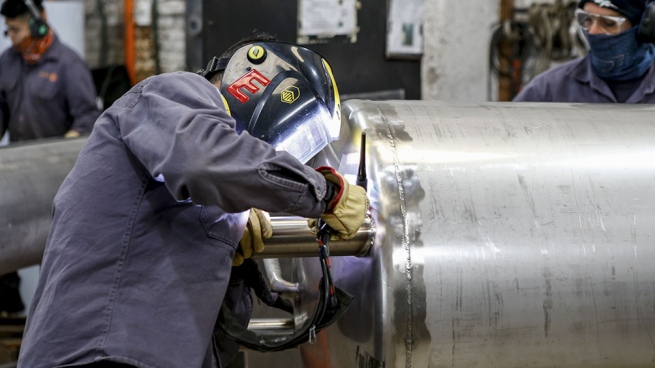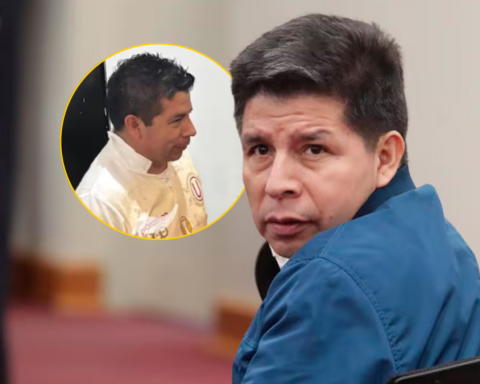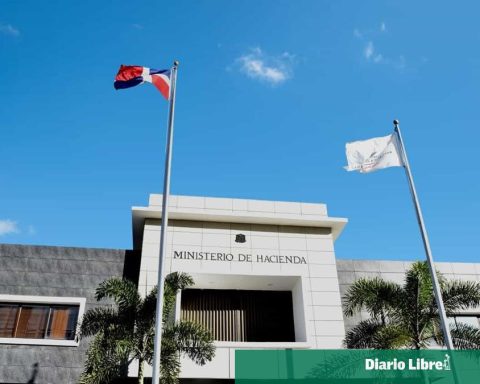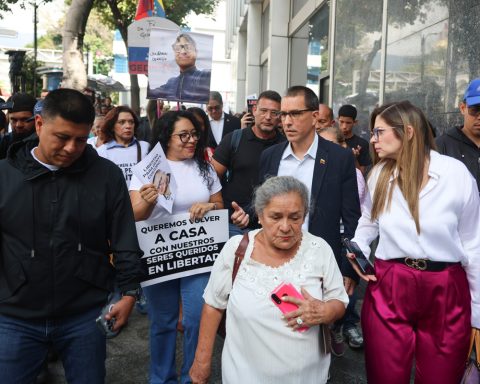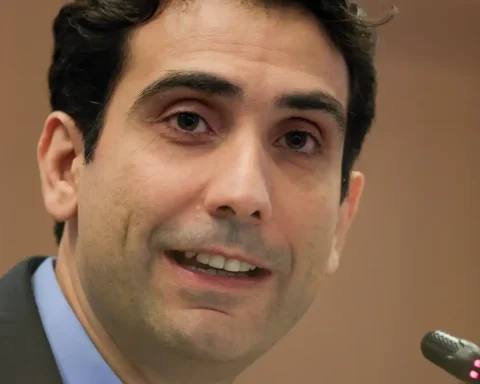The most important work of the German writer and political theorist Hannah Arendt was repeatedly cited by Cabildo Abierto in Monday’s questioning. In the opinion of that formation, the extensive discussion around the controversial passport of the narco Sebastián Marset constitutes a “banalization” of an infinitely greater problem.
“Undoubtedly, we are all concerned that a passport has been issued to a person of these characteristics,” said Guido Manini Ríos. “But I am obliged to believe the information provided by both ministers” dijo, when the session entered its final stretch. “That they adhere to the strict truth and that there is no lie in what they are saying,” he added. “I am forced to believe them and, if I start from that base, I think that this interpellation as such ended a long time ago.”
Manini avoided referring to the substance of the discussion. Much less to “more than trite” celebrity affair decree of 2014 which, in his opinion, brought one of the few novelties of the session. “It was good to confirm that it was signed by Danilo Astori and not by José Mujica,” he noted. Nor to the fact that the “much talked about Marset” has done his “postgraduate” as a drug trafficker in prison, and from there he made connections that allowed him to become someone of “relevance” in the business. “I understand that he has been given excessive volume as a mafia boss, comparing him to Pablo Escobar or Chapo Guzmán”said the senator.
In his view, what should have been discussed this Monday is a concrete fact: the growing impact of drug trafficking in Uruguay from organizations that, for 15 years, have been trying to transfer the main outlet of drugs to Europe to the South Atlantic, its most important market.
Manini cited a statement made by Minister Luis Alberto Heber in the session: the commitment of the political system and its non-involvement with drug trafficking, as is the case in other countries in the region. “I want to believe that it is so, I hope it is so” expressed the leader of Cabildo Abierto, to go on to present on the matter that interested him. There he spoke of major flaws in the policies to fight drug trafficking developed in recent years in which the phenomenon has grown to become a scourge that destroys generations and conditions the future of the country.
In addition to highlighting that the most important task of a government is to face this problem, the senator insisted on an old complaint: the lack of a “national awareness” campaign that warns about the challenge and helps “reduce the demand” for drugs in the country. Manini ruled out the discussion there about whether the granting of the passport to Marset was or was not appropriate. “We are focusing the batteries on the tree and not on the mountain,” he lamented. For Manini, what is truly serious is reaching the point that Uruguay reached in terms of drugs and drug trafficking. There he spoke of “years of wrong policies” that, in his opinion, allowed the landing of large gangs.
Manini located the origin of the phenomenon. At the end of November 2007, a scanner from China intended for container control fell while being unloaded at the Port of Montevideo, due to the lack of a support strap. “They unloaded it without securing it, and it fell like a piano” reported the senator, who recalled that the authorities of the time spoke of a possible intentionality in the act.
The investigation, he noted, was “conveniently filed” in 2011 by the then prosecutor Jorge Díaz. Manini mentioned other cases. For example, the trafficking of Glock weapons to Brazil, or the “berretín” that was found on Saúl Feldman in 2009, “also conveniently archived” by Diaz. Years later, the senator maintained, gigantic drug shipments began to appear in Uruguay, while the Port of Montevideo continues with an “obsolete scanner” to replace the one that had fallen.
Protected by some law firm
Manini, who resumed his parliamentary activity after 20 days of a journey that took him for Finland and Sweden, he insisted: it is essential to attack the demand for drugs and “raise awareness among the Uruguayan people”, in addition to creating infrastructure to care for those addicts who “can and want to recover”.
In his presentation, he spoke of the biggest problem that drug trafficking represents, such as money laundering. There he returned to give examples of certain recent cases that, “instead of setting off alarms, they tried to disguise and hide.” Specifically, she reminded the “I hurt two hurts”the Brazilian Dario Messer, arrested in Montevideo in 2017, where it had set up its operations center to launder more than US$1,652 million through more than 3,000 offshore companies in 52 countries. Messer, recalled Manini, appeared linked to legal studies in Uruguay, protected by “some law firm”.
The leader of Cabildo Abierto returned to his central concept: a State policy is necessary. Drug trafficking, he indicated, is an issue in which the political system must act together. For that, he said, the indicated environment could be the National Economy Council, an organization that the lobbyists have been proposing year after year to discuss different policies.
If we focus on whether or not the issuance of that passport corresponded, the bands are going to be partying, since we will continue to forget the central issue, “Manini concluded.
absolutely average
In the days prior to the interpellation, Senator Guillermo Domenech had demanded explanations about the issuance of the passport to Marset. Publicly, he had claimed to know “who intervened and provided the documentation” to the drug trafficker. Also, he had compared his case to that of the Italian mobster Rocco Morábito, who escaped in 2017 from Cárcel Central.
“They are twin cases,” he had said. “First it was Morabito, now it is Marset. The people have the right to know who is responsible.” Domenech had advanced in a press conference the questions that he sought to clear up with the presence of Heber and Francisco Bustillo. “We have to know who intervened and facilitated the documentation,” he said.
This Monday, the lobbying senator lowered the profile of his questions and closed ranks with the government coalition. “I understand that he was absolutely regular and, if I had any doubts, they have been clarified with the interventions of the ministers”, he affirmed.
Domenech specifically defended the actions of the Undersecretary of Foreign Relations, Carolina Ache, and her controversial meeting with Marset’s lawyer, Alejandro Balbi. According to his vision, there is no proof that the hierarch agreed to anything improper in that meeting, which he described as “the most normal thing in the world.”
